
The Food and Drug Administration approved Enhertu to treat adults with locally advanced or metastatic HER2-positive gastroesophageal or gastric cancer who have previously received a trastuzumab-based treatment regimen.

Ryan McDonald, Associate Editorial Director for CURE®, has been with the team since February 2020 and has previously covered medical news across several specialties prior to joining MJH Life Sciences. He is a graduate of Temple University, where he studied journalism and minored in political science and history. He considers himself a craft beer snob and would like to open a brewery in the future. During his spare time, he can be found rooting for all major Philadelphia sports teams. Follow Ryan on Twitter @RMcDonald11 or email him at [email protected].

The Food and Drug Administration approved Enhertu to treat adults with locally advanced or metastatic HER2-positive gastroesophageal or gastric cancer who have previously received a trastuzumab-based treatment regimen.

The digital program, which provides patients with cancer access to cognitive behavioral therapy and relaxation therapy, has been accessed by approximately 12,000 people across the United States since it launched in 2020.

The Food and Drug Administration approved the supplemental new drug application for Xalkori (crizotinib) to treat children and young adults between the ages of 1 and 21 with relapsed or refractory, systemic ALK-positive anaplastic large cell lymphoma.
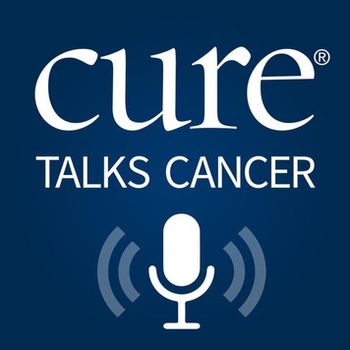
In this episode of the “CURE Talks Cancer” podcast, we spoke with someone who has undergone 41 surgeries and physically debilitating treatments during his more than 15-year journey with several cases of skin cancer. We discussed his cancer journey, and why, as he starts a new treatment after his most prior therapy failed, he’s focused on quality rather than quantity of life.

On social media, CURE® recently asked its readers to share if they have participated in support groups, and, if so, how they benefitted from the experience.

The FDA has lifted a partial clinical hold on a phase 2 trial evaluating a novel therapy in patients with acute myeloid leukemia following an allogenic stem cell transplant.

The FDA’s fast track designation for ARX788 to treat patients with advanced or metastatic HER2-positive breast cancer who have received at least one previous anti-HER2-based treatment in the metastatic setting, may open the doors to an accelerated approval.
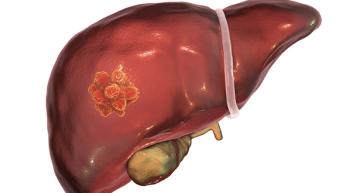
A roundup of liver cancer news and updates that occurred in 2020 patients with cancer may have missed.

The FDA has not yet reached a decision on an application for the approval of a CAR-T cell therapy product for the treatment of relapsed/refractory large b-cell lymphoma and, according to Bristol Myers Squibb, a new action date for the decision has not been set.

The FDA based its decision on data that demonstrated that the novel therapy in combination with Tecentriq induced a higher overall response to therapy compared to Tecentriq alone in patients with PD-L1-positive non-small cell lung cancer.

The FDA granted a priority review to the supplemental new drug application for Lorbrena for the firstline treatment of ALK-positive metastatic non-small cell lung cancer.

Patients with advanced or metastatic kidney cancer treated with the novel drug combination achieved a median progression-free survival of 9.2 months compared to 9.3 months among patients who received Cabometyx with a placebo.

Here is a list of some recent trials that launched within the cancer space in December.

The FDA granted a priority review to the supplemental biologics license application for the combination of Keytruda and chemotherapy for the firstline treatment of locally advanced unresectable or metastatic esophageal and gastroesophageal junction cancer.

An ongoing phase 1/2 was put on hold by the Food and Drug Administration after the death of a patient with pancreatic cancer.

Data from the trial that led to the Food and Drug Administration approval demonstrated that Margenza plus chemotherapy reduced the risk of disease progression or death in patients with metastatic HER2-positive breast cancer by 24%, compared with Herceptin plus chemotherapy.
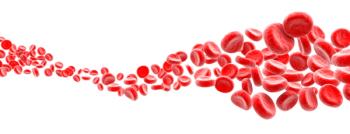
In an interview with CURE®, Dr. Giada Bianchi provides patients an overview of myeloma, including symptoms and risk factors of the disease people should look out for.

If a patient with cancer is no longer receiving active treatment and there are no signs of active disease, an expert from The University of Texas MD Anderson Cancer Center suggests they should have a good response to the COVID-19 vaccine, but direct data on this are not yet available.

On social media, in honor of the holiday season, CURE® recently asked its readers to share some of the best gifts they either given or received during their cancer treatment.

More than half of the patients (66.7%) in the Venclexta and Rituxan arm who went on to receive subsequent Venclexta-based treatments experienced a partial response or partial nodal response to the therapy.
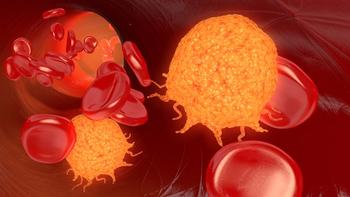
Among 27 patients with relapsed/refractory chronic lymphocytic leukemia patients who completed all 12 cycles of the triplet therapy, 100% of patients had a complete or partial response to the treatment—with 41% achieving a complete response.

The FDA’s Vaccines and Related Biological Products Advisory Committee voted in favor of granting BNT162b2, the COVID-19 vaccine developed by Pfizer and BioNTech, emergency use authorization.

Of note, the results indicated that patients with breast cancer who were younger than 60 and of Black or other race were more likely to experience under-recognized symptoms by their physician.

Recently presented data demonstrated that a combination of oral paclitaxel and Encequidar elicited promising results in patients with radiation-associated breast angiosarcoma.

Younger age, breast cancer diagnosis, Medicaid insurance and treatment type were associated with an increased risk for women becoming new chronic users of opioids or sedatives/hypnotics following mastectomy with reconstructive surgery.
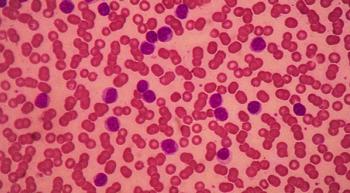
At a median follow-up of 25.9 months, 17% of the patient population who received Calquence monotherapy experienced a cardiac toxicity of any severity, which led to treatment discontinuation in only seven patients.

This data, according to a resident physician at Brigham and Women’s Hospital, highlights the need for systematic mental health screening and management for individuals with blood cancers.

Data suggest that patients with CLL/SLL who achieve confirmed undetectable minimal residual disease following 12 cycles of Imbruvica combined with Venclexta could possibly discontinue and reasonably remain off treatment.

On social media, in honor of Thanksgiving, CURE® recently asked its readers to share what they are most thankful for this holiday season.
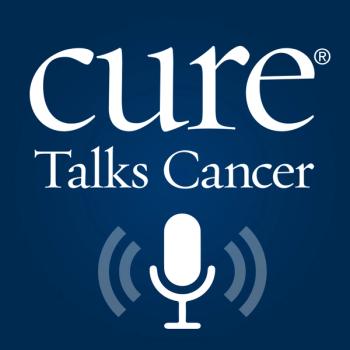
In this episode of the “CURE Talks Cancer” podcast, we spoke with a teenager who was diagnosed with Hodgkin lymphoma at the start of the COVID-19 pandemic. We talked about her cancer journey, what it was like to receive treatment during the pandemic, and more.